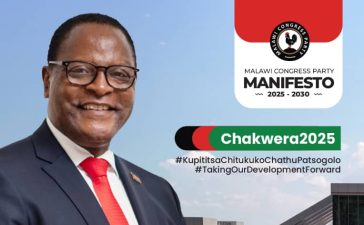Meanwhile, Malawi and Tanzania are not only sharing borders, but also an economic situation related to scanty availability of forex. In a move evident to the fact that a number African countries are undergoing scarcity of the US dollar, a major forex currency, Tanzania has loosened its steps from the dominant cage of the global currency.
In a shocking move that authorities are suggesting is aimed at addressing the ongoing scarcity of US dollars within the country, the Tanzanian government has announced a groundbreaking policy change: Effective immediately, all financial transactions conducted within Tanzania must now be carried out exclusively in Tanzanian Shillings (TZS), rendering transactions in foreign currencies such as the US Dollar illegal.
This regulatory shift, introduced through amendments to the Bank of Tanzania Act, is a direct response to the current shortage of US dollars plaguing the East African nation. The Tanzanian government has taken a decisive stance to stabilize the national currency and insulate the domestic economy from the volatility of the US dollar.
The new regulations stipulate that any non-compliance with this policy can result in legal penalties, making it crucial for businesses to adhere to the new financial guidelines to avoid disruptions. Companies will also incur additional costs associated with converting foreign currencies to TZS, including transaction fees and potential losses due to fluctuating exchange rates.
Operational adjustments are also required, as businesses must update their financial systems and processes to handle TZS-denominated transactions seamlessly. Failure to do so may lead to further complications and challenges.
Furthermore, the new regulations impose strict restrictions on account and investment activities. Residents are now prohibited from maintaining accounts outside Tanzania without the explicit permission of the Governor, and certain types of investments and dealings in gold are also restricted.
The Tanzanian government has cited the need to address the country’s USD scarcity and strengthen the national currency as the primary drivers behind this bold policy shift. However, the implications for international businesses and investors operating in Tanzania are significant, as they will need to adapt quickly to the new financial landscape.
The European Business Group (EUBG) Tanzania, a leading business organization, has called for a progressive follow-up to gather more information about the potential consequences of this policy for businesses. The group has assured its members that it will work closely with the authorities to ensure that their perspectives are included in ongoing discussions.
“As we continue to monitor the implications of these new regulations, we invite our members to share any concerns or issues they may have regarding this topic. Your feedback is invaluable. We will conduct a progressive follow-up to gather more information about this rule and its potential consequences for your businesses”, said a public statement released by EUBG in reaction to the reported policy shift by the Tanzanian government.
As Tanzania navigates this economic challenge, the impact on global trade and investment within the country remains to be seen. Businesses and investors are closely monitoring the situation, awaiting further guidance from the Tanzanian government on the implementation and potential implications of this groundbreaking policy change.













